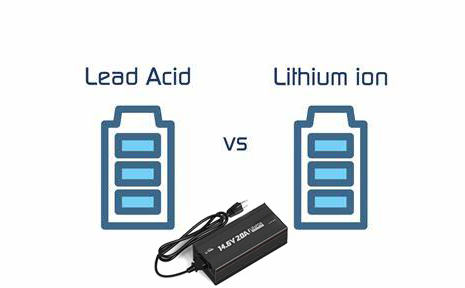There are several reasons why universal chargers are not suitable for both lead-acid and lithium batteries. Firstly, the voltage limits and current controls for each type of battery differ greatly. Typically, the voltage for a single lithium battery is 3.6V to 3.7V, with an upper charge limit of 4.2V. In contrast, a single lead-acid battery has a voltage of 2V, with the upper limit of charging at 14.4V. Proper charging of lithium batteries requires strict control of voltage and current during the charging process.
Secondly, the charging methods vary extensively between lithium and lead-acid battery chargers. Lithium battery chargers commonly use constant current and constant voltage charging methods, which are divided into three stages: pre-charging, constant current charging, and constant voltage charging. On the other hand, lead-acid battery chargers use a three-step charging mode with constant current charging, constant voltage charging, and float charge.
Thirdly, different protection circuits are required for each battery type. Lithium batteries are extremely sensitive to overcharging and over-discharging, which could result in the battery becoming damaged or even exploding. Therefore, lithium battery chargers require built-in protection circuits to prevent these situations from happening. In contrast, lead-acid batteries are more tolerant of these issues and do not require such complex protection circuitry.
Finally, charging efficiency and battery life are affected when using non-dedicated chargers. Using a dedicated charger for a lithium battery will ensure that it is charged under optimal conditions, which increases charging efficiency and extends battery life³. In summary, it is important to use a dedicated charger to ensure the safety and life of the battery.

